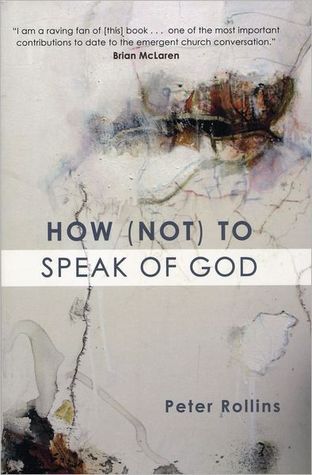More on this book
Community
Kindle Notes & Highlights
Started reading
October 8, 2019
God is the one subject of whom we must never stop speaking.
In faith God is experienced as the absolute subject who grasps us, while in theology we set about reflecting upon this subject. Here the source of our desire is rendered into an (intellectual) object that we may reflect upon. In faith we are held, in theology we hold.
The argument is made that naming God is never really naming God but only naming our understanding of God. To take our ideas of the divine and hold them as if they correspond to the reality of God is thus to construct a conceptual idol built from the materials of our mind.
Thus orthodoxy is no longer (mis)understood as the opposite of heresy but rather is understood as a term that signals a way of being in the world rather than a means of believing things about the world.
I recently heard a well-known speaker say that if faith does not cost us something, then it is nothing.
Orthodoxy as right belief will cost us little; indeed, it will allow us to sit back with our Pharisaic doctrines, guarding the ‘truth’ with the purity of our interpretations. But orthodoxy, as believing in the right way, as bringing love to the world around us and within us … that will cost us everything. For to live by that sword, as we all know, is to die by it.
There is a shared understanding that being a Christian always involves becoming a Christian.
God is not a theoretical problem to somehow resolve but rather a mystery to be participated in. This perspective is evidenced in the Bible itself when we note that the term ‘knowing’ in the Hebrew tradition (in contrast to the Greek tradition) is about engaging in an intimate encounter rather than describing some objective fact: religious truth is thus that which transforms reality rather than that which describes it.
For while we do not grasp God, faith is born amidst the feeling that God grasps us.
In short, an emerging discourse acknowledges that speaking of God is never speaking of God but only ever speaking about our understanding of God.
The fear and rejection of doubt as a legitimate part of faith can be seen at its most stark in the twentieth-century Church’s obsession with the area of apologetics
Legal terminology is often employed within this apologetic discourse so as to give the impression that Christianity can be proven beyond all reasonable doubt by a cold and objective analysis of the empirical evidence for its claims.
Like a lover of nuts who is offered thousands of shells with no centre, so we offer God thousands of ‘converts’ with no heart.


